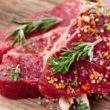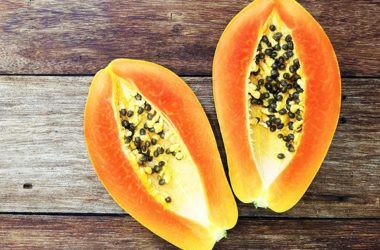It’s true that most fermented foods taste and smell strong. However, they are very easy to love most especially when you get to know some of the incredible health benefits they bring! Whipping up fermented foods in your very own kitchen is also always a possibility, letting you broaden your culinary prowess and serve more healthy homemade treats.
These days, the number of fermented foods are said to be dwindling. That’s because the traditional process of fermenting foods is replaced by other procedures, all in the name of mass production and being economical. For instance, pickles and sauerkrauts are being made using vinegar rather than via the usual lacto-fermentation.
When shopping for fermented foods at the local supermarket, make sure that the commodity you are about to place in your shopping cart is the real deal. Also, it’s a wonderful idea to learn how to ferment your own foods at home. The web is teeming with tutorials and recipes. Many of them are rather simple, making fermenting foods trouble-free.
Here are some of the reasons why the inclusion of fermented foods in your everyday diet is recommended:
Fermented Foods Boost Absorption of Nutrients
No matter how nutrient-dense your meals are, it accounts to nothing if you have poor digestion. Experts say that eating fermented foods actually help enhance digestion, allowing your body to obtain vitamins and minerals in foods better. As a bonus, you get to save money because you don’t have to rely on supplements to prevent nutritional deficiencies.
They are More Nutritionally Dense
Experts say that fermented foods not only help your body absorb nutrients more effectively, but also supply it with more nutrients! It’s because the process of fermentation helps increase the likes of folic acid, pyridoxine, riboflavin and biotin, depending on the types of beneficial present in the fermented treat.
Serving Them Stimulates the Appetite
Fermented foods are good for individuals who have no appetite because they are really flavorful. Their smell alone is often enough to ignite one’s desire to eat. The fact that fermented foods are highly nutritious makes them ideal for people who are recovering from illnesses and could benefit from eating plenty of nutrient-dense foods.
They Help Stretch Your Shopping Budget
Did you know that including fermented foods in your regular diet can save you from going beyond your budget? This is especially true if you make them right in your own kitchen. You will be surprised to know that a lot of ingredients you need for fermenting foods like sea salt and SCOBY (symbiotic culture of bacteria and yeast) are pocket-friendly.
Fermented Foods Promote a Strong Immune System
The condition of your gut has a say in your immunity, say the experts. It’s for this reason why including fermented foods in your diet on a regular basis helps save you from unnecessary allergies and infections. Good bacteria found abundantly in fermented foods keep bad microbes from multiplying, thus keeping your immunity bolstered.
Eating Them Also Helps Ward off Gut Issues
A lot of issues concerning your gut stem from having very few good bacteria that keep the bad ones from multiplying uncontrollably. By regularly consuming the likes of yogurt, kimchi, kombucha and kefir, it’s easy to ward off gut problems as fermented foods are loaded with bad bacteria-fighting probiotics.
They Promote Dental Health, Too
Those good bacteria present in staggering amounts in fermented foods also fight off bad bacteria present in your mouth. As a result, the incidence of cavities and gum disease can be considerably reduced. In other words, the benefits of eating fermented foods start rolling right away as soon as they enter your mouth.
Do you have your favorite fermented foods? Feel free to share them in the comments section below!













